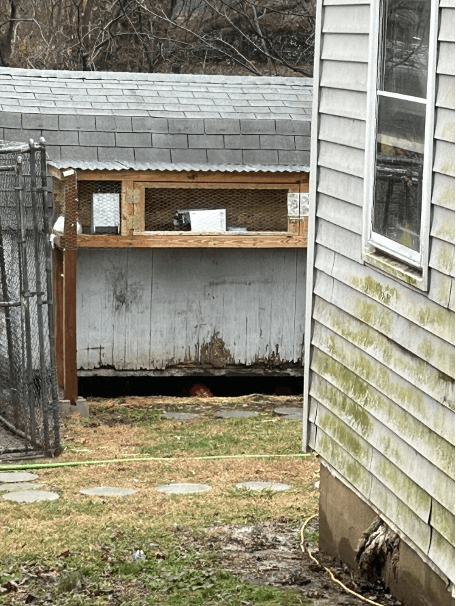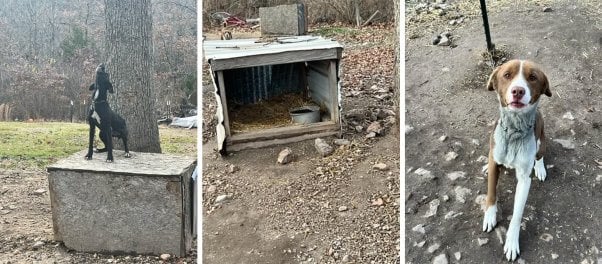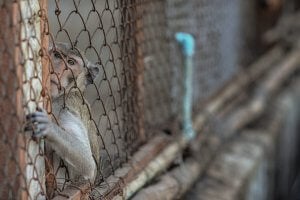In advance of the Gillett Farmers and Businessmen’s Club’s annual Gillett Supper—for which dozens of trapped and hunted raccoons are cooked—PETA fired off a letter to event organizer Gabe Holmstrom today, urging him to give the event a sorely needed update and offering to help develop or provide a vegan meal that honors raccoons instead. PETA points out that raccoons are curious, highly intelligent animals who feel pain and fear, share their food, and benefit the ecosystems in which they live—and they suffer mightily when they’re chased up trees by hounds or caught in steel traps, after which their chests are often crushed under a boot or they’re left to die slowly and painfully from blood loss, exhaustion, or exposure.
© iStock.com/NaturesDisplay
“Raccoons are clever, sensitive animals who don’t want to be trapped, shot, or cut up and served next to a pile of potatoes,” says PETA Executive Vice President Tracy Reiman. “PETA urges Gillett to celebrate local wildlife with a delicious, healthy vegan supper that everyone can feel good about, and if it helps, PETA will provide it.”
PETA—whose motto reads, in part, that “animals are not ours to abuse in any way”—points out that Every Animal Is Someone and offers free Empathy Kits for people who need a lesson in kindness. For more information, please visit PETA.org or follow the group on X (formerly Twitter), Facebook, or Instagram.
PETA’s letter to Holmstrom follows.
January 12, 2024
Gabe Holmstrom
Event Organizer
Gillett Coon Supper
Dear Mr. Holmstrom:
I’m writing on behalf of People for the Ethical Treatment of Animals and our tens of thousands of members and supporters in Arkansas to urge Gillett Farmers and Businessmen’s Club to update its annual supper. Let me be frank: With all due respect, the very title of this supper is offensive, as is the manner in which raccoons, who should be respected as indigenous wildlife, are acquired (that is, caught in steel traps, hounded, treed, terrified, and killed). Times have changed, and this event reflects an unfortunate failure to recognize the evolution in society’s thinking on issues that involve disrespect and worse.
Raccoons are curious, highly intelligent animals who, just like the members of your club, feel pain and fear if cornered and threatened with death. Studies show that they often share food and eat together. They contribute to the ecosystem by dispersing seeds from the wild berries, fruit, and nuts they consume. Their digging improves soil aeration, benefiting plant recruitment and speeding up decomposition. Recognizing raccoons for who they are, not what they taste like, would be an appropriate way to celebrate Arkansas’ wildlife.
Raccoons caught in traps struggle in excruciating pain as the metal cuts into their flesh, often down to the bone. Some animals, especially mothers who are desperate to get back to their young, endure the agony of chewing off one of their own trapped limbs. This ordeal can last for hours. Eventually, the animal succumbs to exhaustion and often exposure, frostbite, shock, or death or is dispatched by a trapper crushing their chest or shooting them if they are “lucky.” In racoon hunts, these animals are as petrified as you would be if hounds were out to kill you, and they are often chased to exhaustion, mauled, or shot.
We urge you to make the Gillett Coon Supper a vegan event, which would send a powerful message about your respect for all life. Our recent collaboration with vegan chef Sasha Raj for a roadkill cook-off in West Virginia highlights the contemporary change in hearts and minds about consuming animals. We would gladly provide you with a wonderful meal that you’d find satisfying in every respect.
Thank you for your time and consideration. We eagerly await your response and are available for support.
Sincerely,
Tracy Reiman
Executive Vice President
The post Modernize That Meal, Evolve Your Eatin’, Veganize Those Vittles! PETA Offer Would Honor Raccoons Instead of Killing Them appeared first on PETA.




